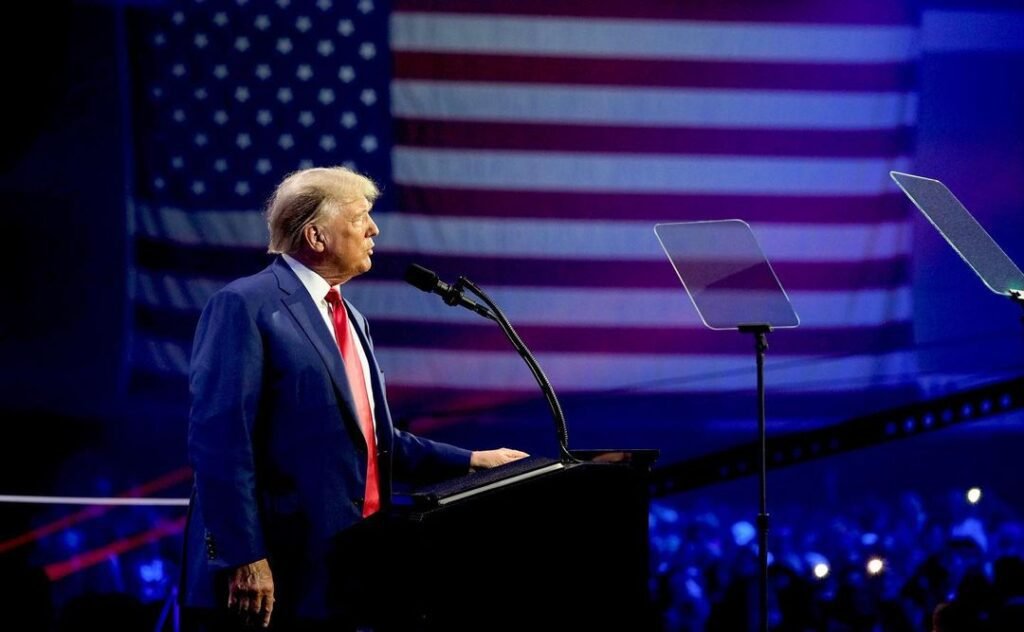
The U.S. Supreme Court has opted not to immediately address the legal contention put forth by former President Donald Trump, who asserts immunity from prosecution in connection with his efforts to overturn the 2020 election results. This decision permits a lower court to persist in its examination of the matter.
U.S. Special Counsel Jack Smith made an unusual plea for an expedited ruling, seeking to bypass the regular appellate process. However, the Supreme Court justices declined this request, refusing to fast-track a final decision on Trump’s claim of criminal immunity before his upcoming trial.
Prosecutors allege that Trump, currently considered the leading contender for the 2024 Republican presidential nomination, engaged in attempts to obstruct Congress and defraud the U.S. government to reverse President Joe Biden’s victory in the 2020 election.
Trump’s defense centers around the argument that former presidents are shielded from criminal charges related to their official responsibilities. U.S. District Judge Tanya Chutkan dismissed this claim on December 1, leading to Trump’s appeal to the U.S. Court of Appeals for the District of Columbia Circuit. This appeal has temporarily halted the scheduled trial set for March.
In an effort to prevent further delays to the trial, Special Counsel Smith urged the Supreme Court on December 11 to expedite a ruling, even as the D.C. Circuit court races to address the issue. If Trump secures reelection on November 5, there is speculation that he may attempt to pardon himself of any potential federal crimes.
Trump’s legal team opposed Smith’s request, characterizing the special counsel’s attempt to sidestep the usual appellate procedures as a “rush to decide the issues with reckless abandon.” Notably, three of the nine Supreme Court justices were appointed by Trump, solidifying a conservative majority of 6-3 on the bench.


